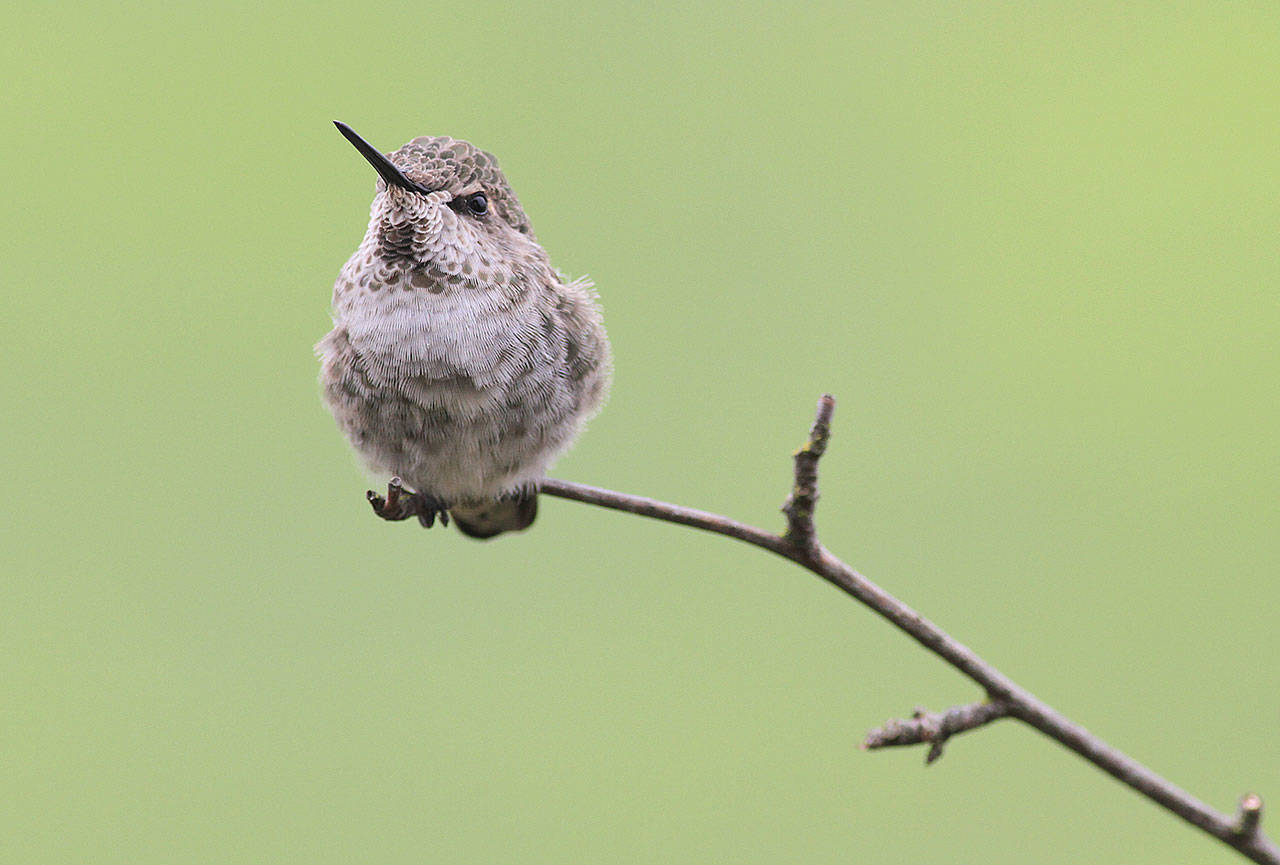By Eli Francovich / The Spokesman-Review
Hummingbirds — and all the frenzied delight they bring to bird devotees and dabblers alike — could be driven entirely from the Inland Northwest by 2050.
“Rufous hummingbirds,” Spokane Audobon Society Spokeswoman Madonna Luers said, referring to a common breed of the bird. “Holy cow.”
The bad news was delivered Thursday with the publication of an expansive and detailed National Audubon Society report examining how a warming climate will impact bird species throughout North America.
The findings are dire: two-thirds of America’s birds are facing climate-change-related extinction by 2100. In Washington, 141 local breeding species, including pygmy nuthatches and mountain bluebirds, could lose half of their existing habitat by the end of the century if current warming trends continue.
“We’re in the midst of a bird emergency,” said David Yarnold, the president and CEO of the National Audubon Society, in a press conference Thursday.
The report drew from 140 million bird observations from across the country and inputted that data into climate change models to see how different warming scenarios could impact species. The report is detailed, giving county-by-county information, and shows how different levels of warming — 1.5, 2 and 3 degrees Celsius — would impact species distribution and survival.
“People just feel paralyzed by the enormity of it,” Yarnold said. “So we’ve created this tool that has enabled people to look into their own communities.”
Most climate experts agree that to forestall catastrophic changes, global warming needs to be kept at 1.5 degrees Celsius above preindustrial levels. Currently, the world temperature is 1 degree Celsius above preindustrial levels.
To keep warming to 1.5 degrees or less, the world would need to cut carbon emissions in half by 2030 and be carbon-neutral by 2050, according to the United Nations’ Intergovernmental Panel on Climate Change.
A smaller study using the same methodology as the Audubon report published Thursday has been peer reviewed and published in Conservation Science and Practice. The full, nationwide report is being peer reviewed by the same publication.
The Audubon report comes on the heels of a September study finding that North America has lost nearly 3 billion birds since 1970. While concerning, Luers said that report was looking at individual birds, not species.
The Audubon report is more expansive and more alarming, she said.
“This is talking diversity,” she said. “We could be living in a world that only has a handful of different kinds of birds.”
Other threatened regional birds include the pygmy owl, dusky grouse and mountain bluebird. The mountain bluebird is Idaho’s state bird and could be driven entirely from the state by 2050, making Idaho one of 13 states that might no longer have habitat suitable for their state bird.
While the news is bad, the Audubon report does offer notes of hope.
If drastic action is taken and global temperatures only rise to 1.5 degrees above preindustrial averages, then about 150 species would no longer face climate-caused extinction nationwide. In Washington state, 45 species would no longer face climate-caused extinction.
And any reduction in overall warming helps numerous bird species, according to Brooke Bateman, an Audubon climate scientist and co-author of the report.
“That would be amazingly ambitious and a hopeful way to look at things,” said Trina Bayard the director of bird conservation for Audubon Washington. “I think people need that to be motivated to take action.”
Kim Thorburn, a Washington Fish and Wildlife Commissioner and avid birder, said the state is addressing climate change. Thursday’s news only drives the importance of that effort home.
In particular, the Washington Department of Fish and Wildlife is looking at landscape-level decisions to protect and adapt to a changing climate. Traditionally, most wildlife management agencies have focused specifically on species, not landscapes. Recently, WDFW announced it will extend its planning timeline from two years to 25 years in hopes of better addressing issues like climate change.
“We have a tremendous restoration opportunity in the cities,” said Jeff Davis, WDFW’s director of conservation in an interview earlier this fall. “We have to be smart about it, because affordable housing is a real conservation crisis for us. Especially in the Puget Sound. A lot of people have to hop on I-5 and drive three hours to a house they can afford.”
At the same time, the Washington Department of Natural Resources is focusing on managing state lands to be climate resilient, said Commissioner Hillary Franz.
“We are now developing an adaption plan for the state,” she said in an interview Thursday.
That plan will come out in the next month or two. Franz also emphasized the importance of keeping forest and grasslands undeveloped. U.S. forests, for example, store 14% of all annual CO2 emissions in the United States. Continuing development threatens that natural carbon sink.
In 2018, Spokane grew more than it had since 2007, while neighboring Kootenai County also boomed.
“It’s pretty scary,” Luers said of the report. “The answers are pretty big picture, but I think every individual can help by supporting the natural spaces, forest wetland and range spaces. We need those types of open space now more than ever.”
Talk to us
> Give us your news tips.
> Send us a letter to the editor.
> More Herald contact information.

























